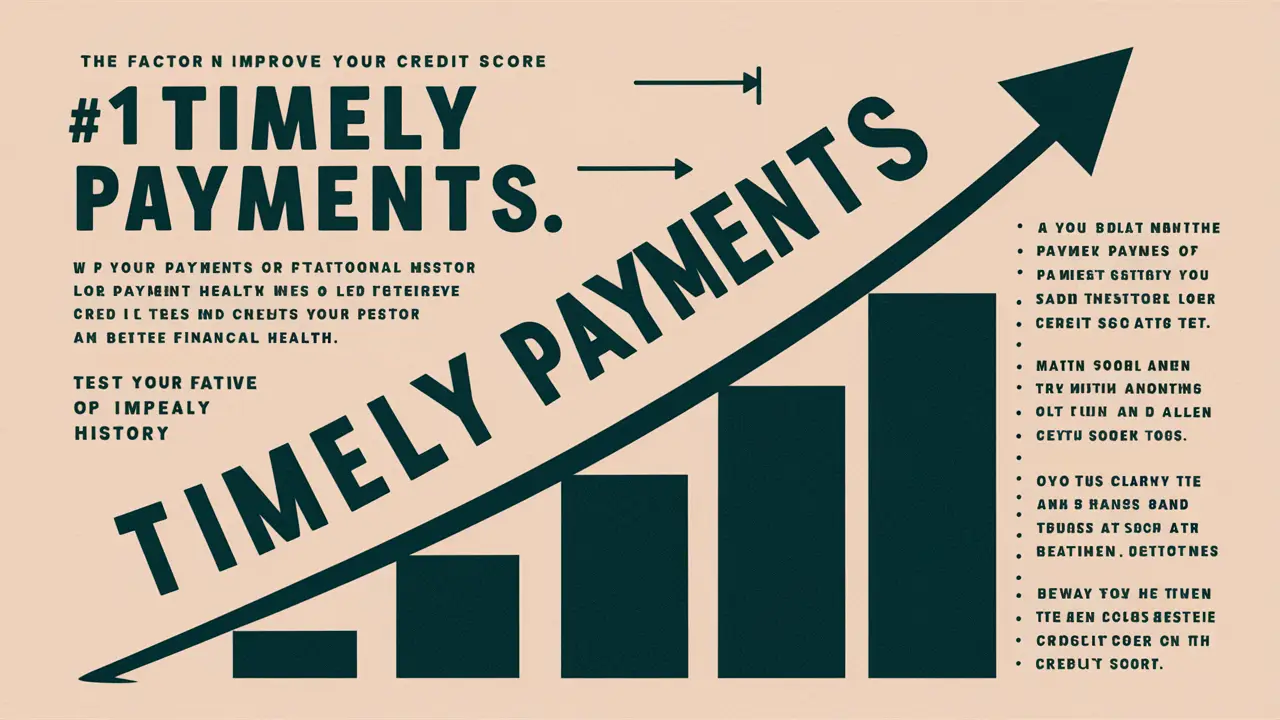
The Most Crucial Element to boost your credit score
Credit score or credit rating remains one of the most important aspects of credit. It effectively influences decisions on interest rates on loans to applications for rental and employment among others. Fortunately, there exists one factor that affects your score positively more than all the rest of the factors combined. To conclude, targeting this area may be a way to achieve credit score success.
This part of our financial literacy work plan focuses on credit card debt and how to reduce it or pay it off completely.
Now, coming to the point, the best and the most effective way of raising credit scores is by reducing your credit card utilization. Your credit utilization, which refers to the level of credit that you actively use compared to your total credit lines, uses 30% of it in rating your FICO credit score.
Some of the aspects that are vital to note include the following; paying your balances on time and ensuring that the balances on your credit cards are low. It is desirable to keep the overall balances on credit cards below 30 percent of your total credit line across all the cards you possess. Balancing your credit well below these averages will result in an even higher score; the ideal being below 10% of your total credit.
The question is how to go about ensuring that you make a payment that is more than the minimum required month after month. Paying as much as possible to high-interest credit cards is money-saving since it pays off interest charges and balances at the same time. This double whammy lets it grow from a low level and climb up to a higher level quite quickly.
The Positive Impact of Reducing the Balance of Credit and Unsecured Loan
There are a few reasons why lowering your credit card debt has such a strong positive effect: There are a few reasons why lowering your credit card debt has such a strong positive effect:
-
Shows Responsible Usage
Having high balances makes it appear as though the individual is utilizing most of his or her limit. Repaying balances indicates the ability to handle credit obligations hence reducing the strain potential creditors place on credit rating.
-
Increases Available Credit
Credit is available in the proportion by which you make the reduction on your credit balances. This directly assists in reducing your credit utilization ratio and is particularly beneficial if you have many credit card accounts.
-
Increases Credit Mix
Most of the lenders would like you to demonstrate that you are capable of managing installment loans and a revolving credit card. Reduction of credit card debt is known to address the “revolving credit” criterion.
-
May reduce the length of credit history.
Paying off credit cards, which is a good practice, brings down the average amount of time active credit cards have been in use, which is bad for credit rating. To have the advantage of having the longest positive history, it is advisable to keep the cards with zero balances.
Balances Constituted a Large Portion of the Score
Credit card balances are a real scoring powerhouse because credit card use is calculated at around thirty percent of the average credit score.
A Real-Life Example
Now let me illustrate by providing a real-life example that will clearly show how much paying off your credit card balances impacts your credit score.
Let’s say Jim has two credit cards: Let’s say Jim has two credit cards:
-
There is Credit Card 1 with a limit of $5,000 and a balance of $4,500.
- Credit Card 2 has a $5000 limit and has a balance of $10000
In credit cards, Jim has $9,500 in credit card balances and $15,000 in credit limit. That is why, credit utilization is 9,500/15,000 = 63%. This is costly and is probably on the higher side of the scale.
Well, let’s assume that Jim pays as much as he can on his cards every month and put it in our second-case scenario. Within these six months, the man can bring down the balance on Card 1 to $0 while he can reduce the balance on Card 2 to $2,000.
He now has $2,000 in credit card balances and has $ 15,000 credit limit. He is actually at 13% and not a 63% utilization ratio!
This means that by paying off the credit card balances that Jim targeted eagerly, he would have gained higher scores of 80-100 points and above within a year. That, if you will, is the amazing scenario that comes with paying off your balances.
In a nutshell, debt affects your credit scores in numerous ways than the two discussed above, as shown below:
While credit card utilization is the most important factor, other forms of debt also influence a credit score, including: While credit card utilization is the most important factor, other forms of debt also influence a credit score, including:
-
On their part, the balances on the installment loans are relatively moderate and evenly distributed.
-
The total amount of the accounts that are overdue and where no payment has been made towards the balance amount.
-
Overall account balance
- Accounts that are placed within collection accounts when a consumer fails to pay on time, and negative public records.
Reducing credit card balances is also helpful across these types of accounts; although, its impact is slightly lower than revolving credit card balances.
The only kind of good or wanted non-performing loan is the unpaid amount on a mortgage as this extends the mix of credit products being handled. In conclusion, the best rates are achieved when the debt balance on all accounts is as low as possible.
Consumer Credit Counseling Service: Learn How to Cut Down on Your Credit Card Debts
It’s never easy to pay off your credit card balances. They cause balances to increase at a faster rate. Low monthly payment rates also prolong the time required to repay loans for as many years as possible.
To get one’s financial life back on track requires that one sets precise targets for paying off the debts. Pay credit card balances with higher interest rates by using a balance transfer to other low-interest rate balance transfer cards. Eliminate some spending for a while and invest money on balances. There are even options like debt consolidation loans or credit counseling services that some of you might look at.
As they say, the journey may not be easy, but the rewards which are 300+ point increases make it worth it and necessary to go through all the hardships that may come with it. There is no other strategy that can turn into a score-building method with less expense and effort.
Pull a credit report and obtain the most recent scores from the three major bureaus. Develop a debt management plan to pay credit card debts according to the interest rates in the following order. Adhere to that plan with fine-grained intensity month after month. Celebrate each debt-freedom milestone.
Soon you will find yourself observing credit scores touching new heights on account of positive credit behaviour which comes in the form of reducing credit utilization for the right reasons. The rewards that accompany a perfect credit score are something you will be able to enjoy in the coming days.
Call now for expert credit repair services: (888) 803-7889
Read More:
What credit score do you need for a $300000 mortgage?
Is it a good idea to buy a house with no money down?
Is it true after 7 years a credit report is clear?
What drops credit score the most?
How far off is the Credit Karma score?




